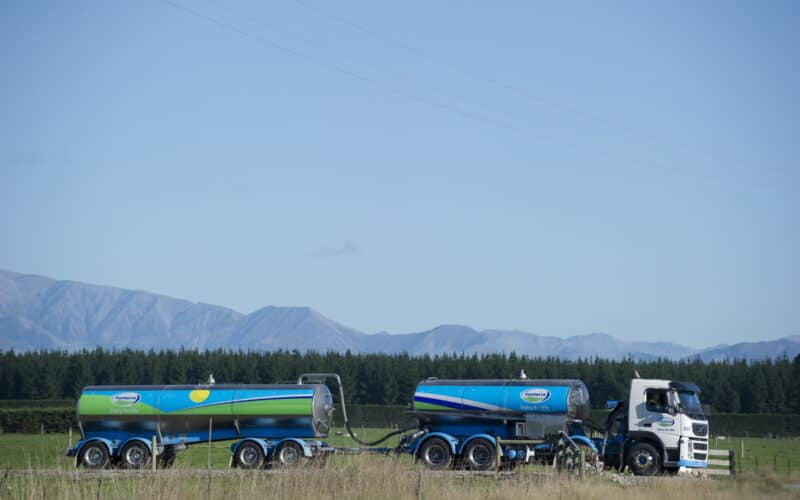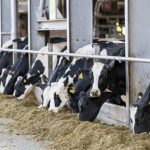
Recent economic data has been more positive than expected so this may translate into higher demand over time.
Each month the Milk Monitor delves into the dairy industry and gives us the lowdown on the good, the bad, the ugly and everything in between.
The year is winding down, with three more Global Dairy Trade auctions left for 2023 at the time of going to press.
Prices dipped 0.7% following the November 8 auction and 2.7% for whole milk powder, ending the run of four consecutive lifts.
Westpac senior agri economist Nathan Penny says from that perspective, prices were due for a break.
WMP prices had lifted 20% over that period, albeit off a steep fall. Following the November 8 fall, they tempered that lift to 17%.
Penny says there are signs that demand in China is picking up.
Recent economic data has been more positive than expected so this may translate into higher demand over time. Also, WMP Contracts 4 and 5 (for delivery in four and five months’ time) were 8% and 9% higher, respectively, than Contract 1.
“This is the clearest sign to date that the removal of the 10% tariff from January will boost Chinese demand,” he says in the bank’s Agri Update.
Fonterra left its 2023-2024 forecast unchanged at its mid-November annual meeting – $6.50-$8/kg MS with a midpoint of $7.25/kg MS.
This reflects ongoing reduced demand for whole milk powder, although there has been a strengthening in prices recently as supply and demand dynamics improve, Fonterra chief executive Miles Hurrell said in his speech at the meeting.
“New Zealand’s milk collections are forecast to be slightly lower than last season, while aggregate milk growth in key export markets is also expected to be below average. On the demand side, it is not yet clear whether the stronger demand seen in recent Global Dairy Trade events will be sustained so we are cautious in our outlook.”
He acknowledged that the strong financial result posted by the co-op was on the back of a falling milk price due to reduced demand and that farmers are facing pressure from continuous high input costs.
“On the demand side, it is not yet clear whether the stronger demand seen in recent Global Dairy Trade events will be sustained so we are cautious in our outlook,” he said.
Eyes will be now turning to how dry the country will get through December. It’s been a reasonably decent latish spring so far, with rain coming along at the right moments to keep the grass growing after the cold and wet winter.
Penny says spring production started on a firm note, indicating it may explain the recent price fall with production up 1.3% compared to September last year.
“Dairy markets previously had been factoring in drought risk on the back of the El Niño weather pattern. In our view, this has been overdone as New Zealand water tables are generally very high and most farmers have ample feed on hand. This will help mitigate or dampen any drought impact. Moreover, we expect ongoing firm production in annual change terms over the remainder of spring,” he says.
There’s also a positive sign for fertiliser prices with price stability expected into the early New Year, albeit with a warning about the conflict in Israel.
Rabobank agricultural analyst for farm inputs Vitor Pistóia says in the bank’s November update that there is small bearish potential in this market, assuming there is no disruption of supply chains or crude oil prices from the Israel-Hamas war.
“For the next five months we forecast international urea prices to be down 11% in US dollar terms compared to the period between November 2022 and March 2023, with DAP prices down 26% and potash down 41%.”
In NZ dollar terms that amounts to 4%, 19% and 35% for urea, DAP and potash respectively, he says.
But critical to these prices staying low is what will happen in the Israel-Hamas war. The conflict is far from where Israel mines phosphate and potash and there has been no suspension of port activity so far, he said.
“Not only is the fertiliser supply under threat but also crude oil and natural gas and thus nitrogenous fertilisers. Egypt is a heavy player in this sector. A conflict escalation involving Egypt would flip the market.”

























